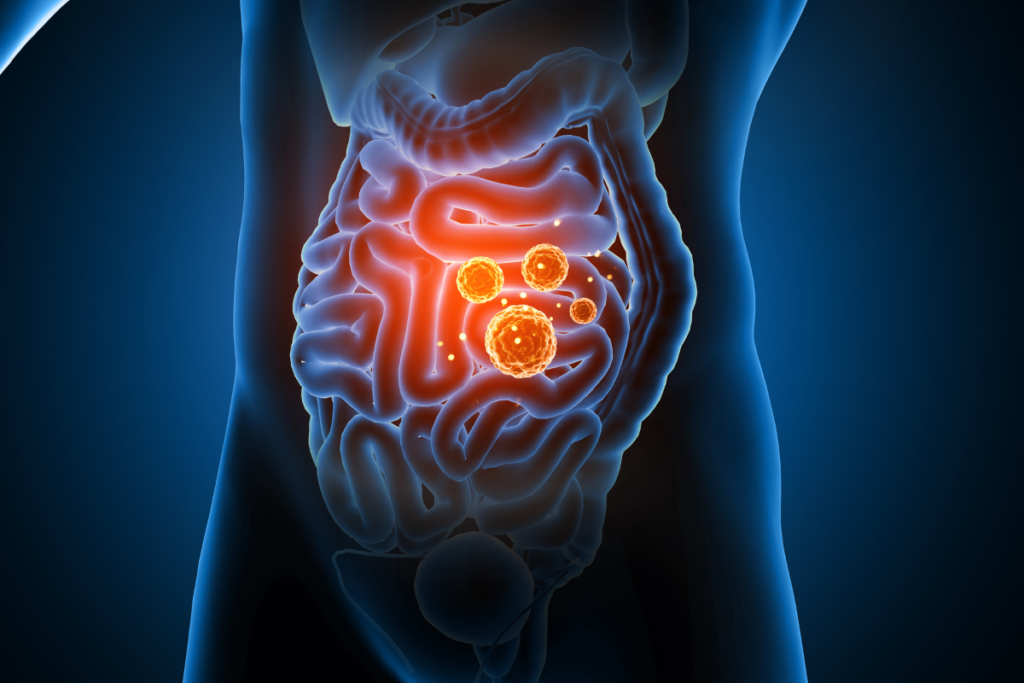
In recent times, the term “gut health” has become a frequent topic of conversation, and for very good reasons. The more we delve into this fascinating subject, the more we understand just how crucial it is. It’s not only integral to digestion, but it also plays a pivotal role in heart health, brain function, immune system support, and even our mood.
Currently, within your gut, approximately 100 trillion microbes are residing. That’s an astounding number! And even more mind-blowing is the fact that there are roughly 1,000 distinct species of gut bacteria known to us.
(Fun Fact #1: If we were to weigh all the bacteria in your gut, it would add up to over 4 pounds (2 kilograms))!
Among these myriad bacteria, some are your personal squad of helpers. They assist in digesting your food, generating energy, and fortifying your immune system. On the other hand, there are less desirable microbes, which have been linked to various health issues, including digestive problems, inflammation, obesity, cardiovascular disease, diabetes, and even asthma.
As you can appreciate, the key is to maintain a delicate balance in your gut, with the scales tilted in favor of the good guys.
The good news is that you have the ability to influence this balance through your dietary and lifestyle choices.
But here’s Fun Fact #2: Your individual gut microbiome is as unique as your fingerprint. No two people share the exact same microbiota makeup. While we do have around one-third of our microbiota in common, the remaining two-thirds are your microbiota “fingerprint” – entirely unique to YOU.
Despite this individuality, there are some basic guidelines that apply to nearly everyone when it comes to nurturing a healthy gut microbiome. Here’s a quick checklist to help you get started on your journey to gut health:
1. Fiber Is Your Friend: Ensure your diet includes an adequate amount of fiber, including insoluble fiber. These fibers serve as the preferred food source for the beneficial bacteria residing in your small intestine.
2. Embrace Fermented Foods: Incorporate fermented foods like yogurt and sauerkraut into your diet. These foods are rich in healthy bacteria that can replenish your gut microbiome. This is particularly important if you’ve recently taken antibiotics, which can disrupt the balance of your gut bacteria.
3. Say No to Processed Foods and Sugar: Avoid processed foods and excessive sugar consumption. The undesirable bacteria thrive on these substances.
4. Stress Less: Implement stress-reduction practices into your daily routine. Activities like meditation, journaling, or spending time outdoors can be immensely beneficial. There’s a direct connection between your brain and gut (via the vagus nerve), and they influence each other profoundly.
5. Keep Moving: Engage in regular physical activity. The more active you are, the happier your gut microbiome tends to be.
6. Prioritize Sleep: Ensure you get sufficient sleep. Disrupted sleep patterns can affect the balance of beneficial bacteria in your microbiome, and conversely, a healthy microbiome can support better sleep.
In the upcoming weeks, I’ll be delving deeper into the world of gut health, sharing more insights and tips to help you cultivate a thriving gut microbiome. Remember, it’s a journey that’s uniquely yours, but the principles of nurturing your gut are universal. Start small, be consistent, and watch as your gut health positively impacts your overall well-being.
It’s amazing how everything works together, isn’t it?
Keith, Michelle & More Team
REFERENCES:
www.gutmicrobiotaforhealth.com/en/about-gut-microbiota-info/
